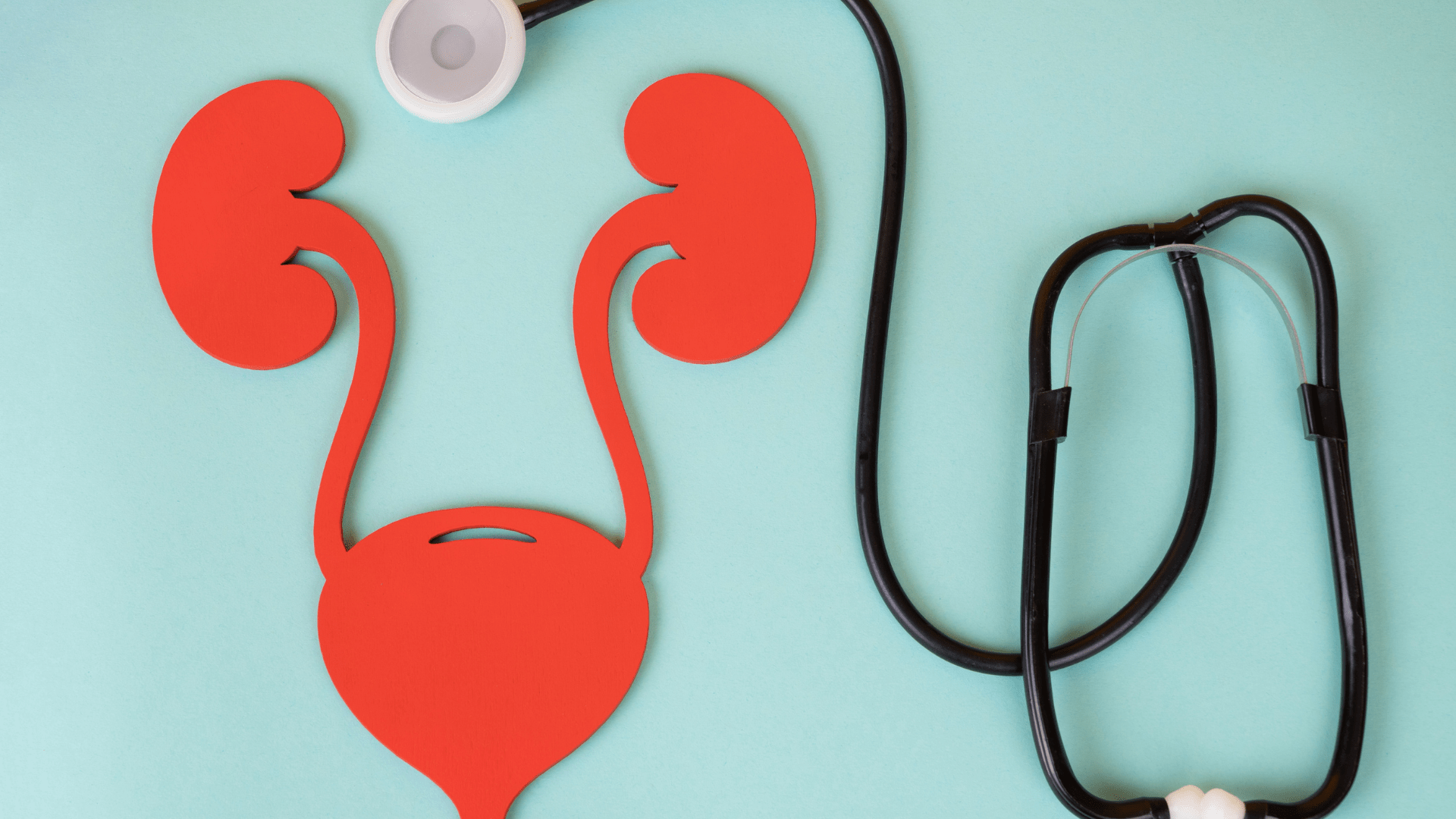Conceiving after struggling with infertility is a joyous and transformative experience. However, the journey doesn’t end with a positive pregnancy test. In fact, there are several surprising things that can occur after conceiving following a period of infertility.
-
Emotional Rollercoaster
While conceiving brings immense joy, it can also trigger a range of emotions, including disbelief, fear, and anxiety. After enduring the challenges of infertility, it’s normal to feel cautious and worried about the well-being of the pregnancy. It’s important to acknowledge and express these emotions, seeking support from your partner, loved ones, or a therapist who specializes in reproductive health. Remember, you are not alone, and it’s okay to have mixed feelings.

-
Anticipatory Anxiety
After experiencing infertility, it’s common to develop anticipatory anxiety throughout the pregnancy. The fear of miscarriage or other complications may be heightened. It’s crucial to strike a balance between staying informed and seeking reassurance from your healthcare provider while also allowing yourself to enjoy the journey. Regular prenatal visits, open communication with your healthcare team, and practicing self-care can help alleviate anxiety.
-
Bonding with the Baby
Some individuals and couples who have experienced infertility may find it challenging to bond with their baby during pregnancy. It’s important to be patient with yourself and give yourself time to connect with your growing baby. Attend childbirth education classes, create a nurturing environment, talk to your baby, and involve your partner in the process. Over time, the bond will naturally strengthen.

-
Overprotective Instincts
Having experienced the difficulties of infertility, it’s common to develop overprotective instincts towards your pregnancy. You may become hyper-vigilant about following pregnancy guidelines, monitoring fetal movements, and seeking reassurance from healthcare providers. While it’s important to prioritize the well-being of your baby, it’s also essential to strike a balance and trust in the natural process of pregnancy.
-
Navigating Triggers and Relationships
Pregnancy announcements or baby showers may evoke mixed emotions in individuals who have struggled with infertility. It’s essential to set boundaries and prioritize your emotional well-being. Communicate your needs to loved ones and find support from friends who understand your journey. Consider joining support groups or seeking therapy to navigate these triggers and maintain healthy relationships.
-
Physical Changes and Pregnancy Symptoms
After conceiving, you may experience a range of physical changes and pregnancy symptoms that are both expected and surprising. These can include morning sickness, fatigue, breast tenderness, and changes in appetite. Embrace these changes as positive signs of a healthy pregnancy, and don’t hesitate to reach out to your healthcare provider if you have any concerns.
-
Gratitude and Reflection
Conceiving after infertility often brings a deep sense of gratitude and reflection. The journey you’ve endured has made the joy of pregnancy even more precious. Take time to reflect on your experience, acknowledge the strength and resilience you’ve shown, and express gratitude for the opportunity to bring new life into the world.
Treatment Measures Taken to Combat These Shocking Events
-
Emotional Support
After conceiving following infertility, it’s crucial to prioritize emotional well-being. Seek support from your partner, friends, and family who understand your journey. Additionally, consider joining support groups or seeking therapy specialized in reproductive health. These resources can provide a safe space to express your emotions, share experiences, and receive guidance on managing the unique challenges that arise during and after pregnancy.
-
Regular Prenatal Care
One of the most effective treatment measures is receiving regular prenatal care. Regular check-ups with your healthcare provider will ensure that you and your baby are progressing well. Prenatal visits include routine examinations, screenings, and tests to monitor your health and the development of your baby. This proactive approach helps identify and address any potential complications early on.
-
Addressing Anxiety and Stress
Anxiety and stress are common after conceiving following infertility. Consider relaxation techniques such as deep breathing exercises, meditation, or prenatal yoga to manage stress levels. Engaging in activities that bring joy and practicing self-care can also help alleviate anxiety. If anxiety persists or becomes overwhelming, consult your healthcare provider, who can offer additional support or refer you to a mental health professional.
-
Education and Birth Preparation
Educating yourself about pregnancy, childbirth, and parenting can empower you and alleviate anxiety. Attend childbirth education classes, read books, and participate in online forums or workshops to gain knowledge and confidence. Understanding the physical and emotional changes that occur during pregnancy and learning about different birth options can help you feel more prepared and in control.

-
Open Communication with Healthcare Providers
Maintaining open communication with your healthcare providers is essential throughout your pregnancy journey. Share any concerns, questions, or unexpected symptoms you may experience. Your healthcare team is there to support you and can provide reassurance, advice, and appropriate medical interventions if needed. Remember, no question or concern is too small or insignificant.
-
Partner Involvement
Including your partner in the process can strengthen your bond and provide additional support. Encourage your partner to attend prenatal appointments, participate in childbirth education classes, and be involved in decision-making processes. Sharing the journey together can help both of you navigate the surprising events with a united front.
-
Self-Care and Healthy Lifestyle
Taking care of your physical and mental well-being is vital during and after pregnancy. Eat a balanced diet, stay physically active with exercises suitable for pregnancy, and get enough rest. Prioritize self-care activities that bring you joy and relaxation. Remember to listen to your body and ask for help when needed.
Conclusion
It’s important to remember that every pregnancy journey is unique, and what may be surprising for one person may not be for another. Emotional challenges, unexpected physical symptoms, anxiety, and concerns about the baby’s well-being are all common experiences after conceiving following infertility. It’s crucial to seek support from your loved ones, join support groups, and engage in self-care activities that promote emotional well-being.
Maintaining open communication with your healthcare provider is key. Regular prenatal care visits, where your healthcare team monitors your progress and addresses any concerns, are essential. Don’t hesitate to reach out to your healthcare provider if you experience unexpected physical symptoms or complications. They are there to provide guidance, reassurance, and appropriate medical advice.
Managing anxiety and fears during this time is vital. Practicing relaxation techniques, seeking professional support from mental health professionals, and staying informed about the progress of your pregnancy can help alleviate anxiety and promote a positive mindset.
Frequently Asked Questions
- What are some common shocking events that can occur during pregnancy after infertility?
Common shocking events during pregnancy after infertility include experiencing anxiety, heightened emotional sensitivity, unexpected physical symptoms, and concerns about the baby’s well-being. These events can range from feeling overwhelmed by the responsibility of pregnancy to grappling with the fear of a potential loss or complications.
- How can I cope with the emotional challenges that arise?
Coping with the emotional challenges requires a multifaceted approach. Seek support from your partner, friends, or family members who can provide a listening ear and understanding. Consider joining support groups specifically for individuals who have conceived after infertility, as these groups offer a supportive community of people who can relate to your experiences. Additionally, practicing self-care activities such as meditation, journaling, or engaging in hobbies that bring you joy can help alleviate stress and promote emotional well-being.
- What should I do if I experience unexpected physical symptoms or complications?
If you experience unexpected physical symptoms or complications during pregnancy, it’s important to contact your healthcare provider immediately. They are the best resource to assess your specific situation, offer appropriate medical advice, and determine if further evaluation or intervention is necessary. It’s essential not to ignore any concerns or symptoms that arise and to communicate openly with your healthcare team.
- How can I manage anxiety and fears during pregnancy after infertility?
Managing anxiety and fears during pregnancy after infertility involves a combination of self-care practices and seeking professional support. Engage in relaxation techniques such as deep breathing exercises, mindfulness, or prenatal yoga to calm your mind and body. Consider consulting a mental health professional who specializes in reproductive health to help address and manage anxiety effectively. They can provide strategies tailored to your specific needs and help you develop coping mechanisms for anxiety related to pregnancy.
- How can I address concerns about the well-being of the baby?
It’s normal to have concerns about the well-being of the baby, especially after experiencing infertility. Open communication with your healthcare provider is crucial. Attend regular prenatal check-ups, where your healthcare provider will monitor the baby’s growth, conduct necessary screenings, and address any concerns you may have. Remember that most pregnancies progress without complications, and trust in the expertise of your healthcare team can provide reassurance during this time.
- Can I prevent or control shocking events after conceiving following infertility?
While some surprising events may be inevitable during pregnancy, there are measures you can take to promote a healthy and positive experience. Engage in a healthy lifestyle by eating a balanced diet, staying physically active within the guidelines provided by your healthcare provider, and getting adequate rest. Prioritize self-care activities that promote relaxation and emotional well-being. Stay informed and educated about the changes occurring in your body and the progress of your pregnancy, and maintain open communication with your healthcare team.





